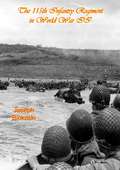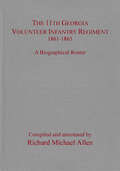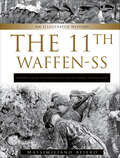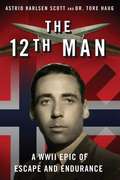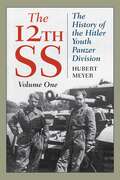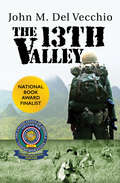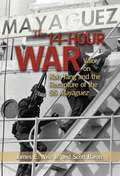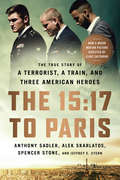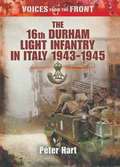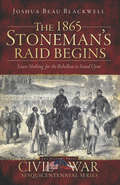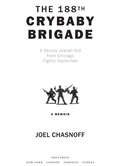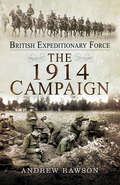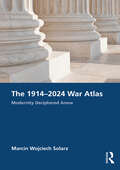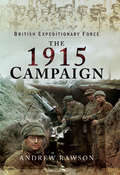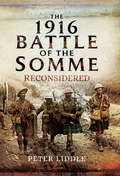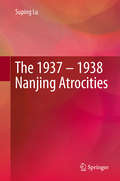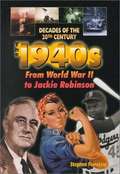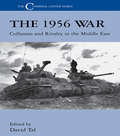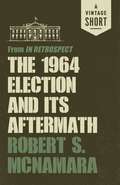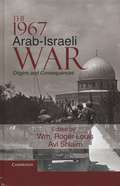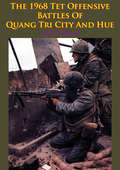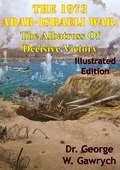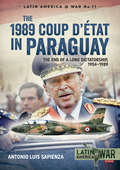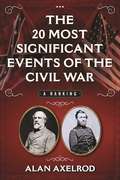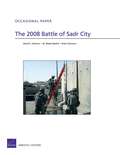- Table View
- List View
The 115th Infantry Regiment in World War II
by Joseph Binkoski Arthur PlautOn 3 February 1941, the First Maryland Infantry Regiment, Maryland Army National Guard, was inducted into federal service as the 115th Infantry Regiment and sent to join the 29th Infantry Division. They arrived in England on 11 October 1942, and then were attached to the 1st Infantry Division in preparation for the D-Day invasion. They moved with the 1st Infantry Division from 2 June 1944, and remained with 1st Infantry Division until 7 June 1944, when they returned to the 29th Infantry Division for further operations. Their participation in the Normandy Campaign continued until it was over on 24 July 1944. They immediately moved into the Northern France Campaign on 25 July 1944, which continued until it was over on 14 September 1944.During this period the 115th Infantry Regiment was engaged in one of the war's forgotten chapters, "The Battle of Brest". The Battle for Brest was one of the fiercest battles fought during Operation Cobra, the Allied breakout of Normandy which began on 27 July 1944, during the Battle of Normandy during World War II. The 115th Infantry then started participation in the Rhineland Campaign on 15 September 1944, whereupon the 115th Infantry crossed from France to Belgium and the Netherlands both on 27 September 1944, and entered Germany on 30 September 1944.
The 11th Georgia Volunteer Infantry Regiment 1861–1865: A Biographical Roster
by Richard Michael AllenThe 7th, 8th, 9th, and 11th Georgia volunteer infantry regiments spent most of the Civil War fighting under Brig. Gen. George Thomas “Tige” Anderson in Gen. Robert E. Lee’s Army of Northern Virginia. Until now, no biographical roster of their members has ever been published. These Georgians saw it all, from the bloody battle of First Manassas through the ferocious combat of Second Manassas, Sharpsburg, Gettysburg, the Wilderness, Spotsylvania, and the long siege of Petersburg. They finally furled their banners at Appomattox. Nearly 5,000 men passed through these four Georgia regiments. These rosters offer a long overdue record of these men. Each roster is organized by company in a simple and easy to use format. Entries feature full names (if known), promotions, demotions, casualties, transfers, and resignations for every rank—an unprecedented look into men and the structure and evolution of these organizations. They include the most comprehensive examination of the personnel originally enlisted and their subsequent service histories within these units in chronological order for the first time. Compiler and author Richard Allen has spent nearly two decades researching scores of archives and other sources to prepare these rosters. He utilized primary sources such as the Official Records, Compiled Service Records, newspaper accounts, diaries, letters, census information, burial records, and a variety of documents from both published sources and private collections. Students of the Civil War, genealogists, and enthusiasts of Georgia history will find these rosters invaluable. Everyone who uses them owes Rick Allen a hearty, and heartfelt, thank you.
The 11th Waffen-SS: An Illustrated History
by Massimiliano AfieroBy the far the most extensive history of the Nordland Division in English, with the largest volume of photos
The 12th Man: A WWII Epic of Escape and Endurance
by Astrid Karlsen Scott Tore HaugThe book that inspired the international film of the same name. "I remember reading We Die Alone in 1970 and I could never forget it. Then when we went to Norway to do a docudrama, people told us again and again that certain parts were pure fiction. Since I was a Norwegian that was not good enough; I had to find the truth. I sincerely believe we did,” writes author Astrid Karlsen Scott.The 12th Man is the true story of Jan Baalsrud, whose struggle to escape the Gestapo and survive in Nazi-occupied Norway has inspired the international film of the same name. In late March 1943, in the midst of WWII, four Norwegian saboteurs arrived in northern Norway on a fishing cutter and set anchor in Toftefjord to establish a base for their operations. However, they were betrayed, and a German boat attacked the cutter, creating a battlefield and spiraling Jan Baalsrud into the adventure of his life. The only survivor and wounded, Baalsrud begins a perilous journey to freedom, swimming icy fjords, climbing snow-covered peaks, enduring snowstorms, and getting caught in a monstrous avalanche. Suffering from snowblindness and frostbite, more than sixty people of the Troms District risk their lives to help Baalsrud to freedom. Meticulously researched for more than five years, Karlsen Scott and Haug bring forth the truth behind this captivating, edge-of-your-seat, real-life survival story.
The 12th SS: The History of the Hitler Youth Panzer Division
by Hubert MeyerThis defining work on Hitler's elite fanatical boy soldiers details the creation and training of these teenage warriors and their baptism of fire in the Normandy campaign in World War II. Written by the division's former chief of staff, Volume 1 details all aspects of the division's history with a balanced mix of tactical and strategic accounts.
The 13th Valley
by John M. Del VecchioA work that has served as a literary cornerstone for the Vietnam generation, The 13th Valley follows the strange and terrifying Vietnam combat experiences of James Chelini, a telephone-systems installer who finds himself an infantryman in territory controlled by the North Vietnamese Army. Spiraling deeper and deeper into a world of conflict and darkness, this harrowing account of Chelini's plunge and immersion into jungle warfare traces his evolution from a semi-pacifist to an all-out warmonger. The seminal novel on the Vietnam experience, The 13th Valley is a classic that illuminates the war in Southeast Asia like no other book.
The 14-Hour War
by Scott Baron James E. Wise JrA hastily conceived joint operation to recover the American container ship, Mayaguez, and her crew that had been seized by the Khmer Rouge off the Cambodian coast in 1975 was plagued by inaccurate intelligence and a micro-managed command structure that extended to the Oval Office. This book focuses on the 200 Marines, fresh out of boot camp, sent in to rescue a crew that wasn't there. Briefed to expect minimal resistance on Koh Tang Island, instead they found some 500 heavily armed Khmer Rouge combat veterans. An intense battle ensued as the Marines held out for half a day against a vastly superior force before being evacuated. As a result of that 14 hour battle, four Air Crosses and a Navy Cross were awarded, 41 U.S, servicemen lost their lives and three Marines were left behind. In the valor demonstrated by these young Marines on Koh Tang, however, the United States regained a small bit of luster to a reputation tarnished by its withdrawal from Cambodia and Vietnam
The 15: The True Story of a Terrorist, a Train, and Three American Heroes
by Alek Skarlatos Anthony Sadler Jeffrey E. Stern Spencer StoneAn ISIS terrorist planned to kill more than 500 people. He would have succeeded except for three American friends who refused to give in to fear.On August 21, 2015, Ayoub El-Khazzani boarded train #9364 in Brussels, bound for Paris. There could be no doubt about his mission: he had an AK-47, a pistol, a box cutter, and enough ammunition to obliterate every passenger on board. Slipping into the bathroom in secret, he armed his weapons. Another major ISIS attack was about to begin.Khazzani wasn't expecting Anthony Sadler, Alek Skarlatos, and Spencer Stone. Stone was a martial arts enthusiast and airman first class in the US Air Force, Skarlatos was a member of the Oregon National Guard, and all three were fearless. But their decision-to charge the gunman, then overpower him even as he turned first his gun, then his knife, on Stone-depended on a lifetime of loyalty, support, and faith.Their friendship was forged as they came of age together in California: going to church, playing paintball, teaching each other to swear, and sticking together when they got in trouble at school. Years later, that friendship would give all of them the courage to stand in the path of one of the world's deadliest terrorist organizations.The 15:17 to Paris is an amazing true story of friendship and bravery, of near tragedy averted by three young men who found the heroic unity and strength inside themselves at the moment when they, and 500 other innocent travelers, needed it most.
The 16th Durham Light Infantry in Italy, 1943–1945: An Oral History Of The Great War (Voices from the Front)
by Peter HartThe Second World War is vanishing into the pages of history. The veterans were once all around us, but their numbers are fast diminishing. While still in their prime many recorded their memories with Peter Hart for the Imperial War Museum. As these old soldiers now fade away their voices from the front are still strong with a rare power to bring the horrors of war back to vivid life. The 16th Durham Light Infantry were supposed to be just an 'ordinary' battalion. But their experiences as they fought their way up through Italy show that there is no such thing as 'ordinary'. They struggled to break out from Salerno, then across the countless rivers and mountain ranges that seemed to spring up to bar their way to victory. They learnt their military skills the hard way facing determined German opposition every step of the way. These were no 'D-Day Dodgers' but heroes in their own right. But there was another battle being fought as they struggled to maintain their morale day by day, as their friends died and their seemed to be no end in sight. This is their story.Peter Hart was born in 1955. After attending Liverpool University he has worked as the Oral Historian at the Imperial War Museum since 1981, He is responsible for interviewing veterans of all conflicts from the Great War to the present day. His previous books include 1918: A Very British Victory, The Somme, 1916, Aces Falling: War Above the Trenches, 1918 and Jutland, 1916. His Voices from the Front series with Pen & Sword includes, The 16th Durham Light Infantry, The 2nd Norfolk regiment and the South Notts Hussars. He is married with two children and lives in North London
The 1865 Stoneman's Raid Begins: Leave Nothing for the Rebellion to Stand Upon (Civil War Series)
by Joshua Beau BlackwellStriking out from Knoxville, Tennessee in late March of 1865, Major General George Stoneman unleashed his cavalry division upon Southern Appalachia intent on "leaving nothing for the Rebellion to stand upon." The raiders wreaked havoc on government stores, civilian property and indispensable infrastructure, dashing all hope for the dying Confederacy's stand on the rugged peaks of the Blue Ridge. They eventually trampled through five southern states, reduced to ashes one of the last major prisons in the south and helped pursue the renegade president. But much more than wanton destruction, their story is one of hardship, redemption and retribution. Taking into account the local folklore of the Raid, this volume traces the column's course as it departed Tennessee, penetrated Southwestern Virginia and stormed the North Carolina Piedmont.
The 188th Crybaby Brigade: A Memoir
by Joel ChasnoffLook at me. Do you see me? Do you see me in my olive-green uniform, beret, and shiny black boots? Do you see the assault rifle slung across my chest? Finally! I am the badass Israeli soldier at the side of the road, in sunglasses, forearms like bricks. And honestly -- have you ever seen anything quite like me?Joel Chasnoff is twenty-four years old, an American, and the graduate of an Ivy League university. But when his career as a stand-up comic fails to get off the ground, Chasnoff decides it's time for a serious change of pace. Leaving behind his amenity-laden Brooklyn apartment for a plane ticket to Israel, Joel trades in the comforts of being a stereotypical American Jewish male for an Uzi, dog tags (with his name misspelled), and serious mental and physical abuse at the hands of the Israeli Army. The 188th Crybaby Brigade is a hilarious and poignant account of Chasnoff's year in the Israel Defense Forces -- a year that he volunteered for, and that he'll never get back. As a member of the 188th Armored Brigade, a unit trained on the Merkava tanks that make up the backbone of Israeli ground forces, Chasnoff finds himself caught in a twilight zone-like world of mandatory snack breaks, battalion sing-alongs, and eighteen-year-old Israeli mama's boys who feign injuries to get out of guard duty and claim diarrhea to avoid kitchen work. More time is spent arguing over how to roll a sleeve cuff than studying the mechanics of the Merkava tanks. The platoon sergeants are barely older than the soldiers and are younger than Chasnoff himself. By the time he's sent to Lebanon for a tour of duty against Hezbollah, Chasnoff knows everything about why snot dries out in the desert, yet has never been trained in firing the MAG. And all this while his relationship with his tough-as-nails Israeli girlfriend (herself a former drill sergeant) crumbles before his very eyes. The lone American in a platoon of eighteen-year-old Israelis, Chasnoff takes readers into the barracks; over, under, and through political fences; and face-to-face with the absurd reality of life in the Israeli Army. It is a brash and gritty depiction of combat, rife with ego clashes, breakdowns in morale, training mishaps that almost cost lives, and the barely containable sexual urges of a group of teenagers. What's more, it's an on-the-ground account of life in one of the most embattled armies on earth -- an occupying force in a hostile land, surrounded by enemy governments and terrorists, reviled by much of the world. With equal parts irreverence and vulnerability, irony and intimacy, Chasnoff narrates a new kind of coming-of-age story -- one that teaches us, moves us, and makes us laugh.
The 1914 Campaign: The 1914 Campaign (British Expeditionary Force)
by Andrew RawsonThe book concentrates on the British Expeditionary Force's defensive actions during the retreat from Mons through to the advance to the River Aisne and the first days of trench warfare. Then moved north to Ypres, where it endured three long weeks of German attacks. By compiling information from the Official History and the printed histories we get an in-depth British account of each large battle and minor action.Together the narrative and over 60 maps provide an insight into the British Army's experience during those early days of the First World War. This is about the men who made a difference, the men who fought off many times their number, those who led the counterattacks and those who were awarded the Victoria Cross. Discover the real 1914 campaign fought by the British Army and learn how the brave soldiers of the BEF fought hard to achieve their objectives.
The 1914–2024 War Atlas: Modernity Deciphered Anew
by Marcin Wojciech SolarzThe 1914–2024 War Atlas deconstructs the contemporary widespread and well-known image of the 20th and 21st centuries, arguing for the continuity of the historical process covering the period 1914–2024.The years between 1914 and 2024 constitute a period of unparalleled economic growth, scientific advancement, political development, and social change – in just over 100 years, human civilization has moved from an industrial to a digital age. However, they also cover some of the most dangerous, violent, and politically volatile years in human history. In these years, two world wars have been fought; weapons of mass destruction dropped; authoritarian and democratic regimes alike have risen and fallen; and regional conflicts have been almost continuous, effectively conjoining World War I, World War II, the Cold War, and the Russo-Ukrainian war. This volume indicates that the 1914 July Crisis set in motion a sequence of events that spanned over 100 years. Containing a range of colourful maps and charts, this book graphically illustrates the arguments presented in both an informative and visual way.This atlas will serve as a perfect textbook for students studying history, geography, politics, and international relations, as well as being a useful guide to contemporary world politics for researchers and for those interested in international relations and modern history.
The 1915 Campaign: The 1915 Campaign (British Expeditionary Force)
by Andrew RawsonThe British Expeditionary Force The 1915 Campaign is a thorough account of the BEF's actions during the battles of 1915 and early 1916, starting with the success at Neuve Chapelle in March and the nightmare gas attack at Ypres in April. It follows their
The 1916 Battle of the Somme Reconsidered
by Peter LiddleTwenty-four years after the publication of his classic study of the Somme, Peter Liddle reconsiders the battle in the light of recent scholarship. The battle still gives rise to fierce debate and, with Passchendaele, it is often seen as the epitome of the tragic folly of the First World War. But is this a reasoned judgement? Peter Liddle, in this authoritative study, re-examines the concept and planning of the operation and follows the course of the action through the entire four and a half months of the fighting. His narrative is based on the graphic testimony of the men engaged in the struggle, not just concentrating on the front-line infantryman but also the gunner, sapper, medical man, airman and yes, the nurse, playing her crucial role behind the line of battle. The reader is privileged in getting a direct insight into how those who were there coped with the extraordinary, often prolonged, stress of the experience and maintained to a remarkable degree a level of morale adequate for what had to be endured.
The 1937 – 1938 Nanjing Atrocities
by Suping LuThis book presents a comprehensive overview of the Nanjing Massacre, together with an in-depth analysis of various aspects of the event and related issues. Drawing on original source materials collected from various national archives, national libraries, church historical society archives, and university libraries in China, Japan, Germany, United Kingdom and the United States, it represents the first English-language academic attempt to analyze the Nanjing Massacre in such detail and scope.The book examines massacres and other killings, in addition to other war crimes, such as rape, looting, and burning. These atrocities are then explored further via a historical analysis of Chinese survivors’ testimony, Japanese soldiers’ diaries, Westerners’ eyewitness accounts, the news coverage from American and British correspondents, and American, British and German diplomatic dispatches. Further, the book explores issues such as the role and function of the International Committee for Nanking Safety Zone, burial records of massacre victims, post-war military tribunals, controversies over the Nanjing Massacre, and the 100-Man Killing Contest.This book is intended for all researchers, scholars, graduate and undergraduate students, and members of the general public who are interested in Second World War issues, Sino-Japanese conflicts, Sino-Japan relations, war crimes, atrocity and holocaust studies, military tribunals for war crimes, Japanese atrocities in China, and the Nanjing Massacre.
The 1940s: From World War II to Jackie Robinson (Decades of the 20th Century)
by Stephen FeinsteinThe Decades of the 20th Century series uses short articles and numerous photos to introduce young readers to the people and events that made news and changed history in the twentieth century. -- Highlighting important happenings in politics, science, sports, the arts and entertainment, and environmental issues, the series also focuses on interesting topics like the lifestyles, fashions, and fads that have made each decade of the century unique and memorable. -- Curriculum based and useful for reports.
The 1956 War: Collusion and Rivalry in the Middle East (Cummings Center Series #Vol. 11)
by David TalRecently declassified documents and new scholarship have prompted this reassessment of the collusion between Israel, France and England which drove the 1956 War. International aspects, Israeli involvement, the plot which sparked off hostilities, and the Egyptian losses and gains are analyzed.
The 1964 Election and Its Aftermath: from In Retrospect
by Robert Mcnamara"Can anyone remember a public official with the courage to confess error and explain where he and his country went wrong? This is what Robert McNamara does in this brave, honest, honorable, and altogether compelling book."—Arthur Schlesinger, Jr. Written twenty years after the end of the Vietnam War, former Secretary of Defense Robert McNamara's controversial memoir answers the lingering questions that surround this disastrous episode in American history, and chronicles the political events and fatal misassumptions that were behind the US involvement in Vietnam.A Vintage Shorts Vietnam Selection. An ebook short.
The 1967 Arab-Israeli War: Origins and Consequences
by Avi Shlaim W. Roger LouisThe June 1967 war was a watershed in the history of the modern Middle East. In six days, the Israelis defeated the Egyptian, Syrian and Jordanian armies, seizing large portions of their territories. Two veteran scholars of the Middle East bring together some of the most knowledgeable experts in their fields to reassess the origins and the legacies of the war. Each chapter takes a different perspective from the vantage point of a different participant, those that actually took part in the war and also the world powers that played important roles behind the scenes. Their conclusions make for sober reading. At the heart of the story was the incompetence of the Egyptian leadership and the rivalry between various Arab players who were deeply suspicious of each other's motives. Israel, on the other side, gained a resounding victory for which, despite previous assessments to the contrary, there was no master plan.
The 1968 Tet Offensive Battles Of Quang Tri City And Hue [Illustrated Edition]
by Erik Villard[Includes 10 maps, 5 illustrations]“This monograph focuses on the battles of Quang Tri City and Hue that took place during the 1968 Tet offensive. The offensive itself, an all-out effort by Viet Cong and North Vietnamese forces to overrun the major cities of South Vietnam, marked the turning point of the Vietnam War. Although the attacks were costly failures in military terms, they set the United States on a path of disengagement from the war that ultimately led to the fall of Saigon some seven years later.The battles for the two northernmost provincial capitals in South Vietnam, Quang Tri City and Hue, are particularly worth examining because the enemy regarded them as key objectives, second only to Saigon, the national capital. To a large extent, the success or failure of the offensive depended on what happened there. The battles tell us much about how the enemy prepared for the offensive, why he achieved a high degree of surprise and initial success, and why his attacks ultimately failed. The battle for Quang Tri City, a textbook example of a vertical envelopment, resulted in a quick allied victory. The fight for Hue turned into a slow, grinding campaign of attrition that lasted nearly a month before the enemy was finally defeated. Together, they offer instruction on the strengths and limitations of airmobile warfare and a primer on urban fighting in a counterinsurgency environment, subjects that continue to be a major Army interest throughout the world.”
The 1973 Arab-Israeli War: The Albatross Of Decisive Victory [Illustrated Edition]
by Dr George W. GawrychIncludes 8 maps and more than 20 illustrationsArmies appear to learn more from defeat than victory. In this regard, armed forces that win quickly, decisively, and with relative ease face a unique challenge in attempting to learn from victory. The Israel Defense Forces certainly fell into this category after their dramatic victory over the combined armies of Egypt, Jordan, and Syria in the Six Day War of June 1967.This study analyzes the problems that beset Israel in the aftermath of its decisive victory in the Six Day War over the Arabs. In the 1973 War, Anwar Sadat, Egypt's president, was able to exploit Israeli vulnerabilities to achieve political success through a limited war. An important lesson emerges from this conflict. A weaker adversary can match his strengths against the weaknesses of a superior foe in a conventional conflict to attain strategic success. Such a strategic triumph for the weaker adversary can occur despite serious difficulties in operational and tactical performance.The author suggests a striking parallel between the military triumphs of Israel in 1967 and the United States in 1991. In both cases, success led to high expectations. The public and the armed forces came to expect a quick and decisive victory with few casualties. In this environment, a politically astute opponent can exploit military vulnerabilities to his strategic advantage. Sadat offers a compelling example of how this can be done.
The 1989 Coup d'Étát in Paraguay: The End of a Long Dictatorship, 1954–1989 (Latin America at War #11)
by Antonio Luis SapienzaThe year 1989 was crucial for Paraguay. After a long period of 35 years of dictatorship, General Alfredo Stroessner was finally overthrown by a violent coup d’état. In a sort of prophetic way, he once said, "I came to power by arms and I will only leave by arms,” and that came true on 2 February of that year. The 1989 Coup d’état in Paraguay discusses Stroessner’s climb to power during a coup of 1954, fraudulent elections that got him reelected seven times, and the ways Stroessner kept himself afloat through cooperation with the armed forces, a right-wing political party, and the USA. Arguably, longing to maintain his popularity, the dictator launched a large number of major development projects, including construction of roads, water and sewage facilities, three big hydroelectric power stations, and a buildup of an airline. At the same time, abuse of human rights and oppression of any kind of political opposition became a norm: dozens of political prisoners were tortured and even executed, and thousands driven into exile. As could be expected from a dictator with a military background, Stroessner prompted a major expansion and a buildup of the armed forces and the police, too. Nevertheless, it was the armed forces of Paraguay that brought about his demise: the coup that finally ended Stroessner’s rule was planned by General Andres Rodriguez, the Commander of the I Army Corps – and then with full support of large segments of the Army, Air Force and the Navy of Paraguay. A detailed description of the coup in question, and how Stroessner was driven into exile in Brazil, is the centerpiece of this narrative. Thirty years since the fall of Stroessner’s regime, many things have changed in Paraguay: still, many remain the same. Containing over 100 photographs, color profiles, maps and extensive tables, The 1989 Coup d’etat in Paraguay is a unique study and a source of reference about an important episode in Latin American history.
The 20 Most Significant Events of the Civil War: A Ranking
by Alan AxelrodThis is the first book to not only select the events that most influenced the causes and outcome of America’s Civil War, but also to rank them in order of significance. In each of the book’s 20 detailed essays, author/historian/speaker Alan Axelrod presents an engaging narrative about the event, and also explains how the event shaped the course of the war, and ultimately the future of the country.The author’s selection and ranking criteria include:Effect as cause or trigger of the warDecisiveness: whether it was a war-winning or war-losing event (both in military terms and in terms of public opinion, morale, and support)Magnitude and scope: size and cost of a battleEnduring postwar significance in American history, politics, society, culture and/or in military history and technologyFrom Lincoln’s Inauguration, Antietam, and John Brown’s raid, to the New York draft riots and Stonewall Jackson dying as a result of friendly fire ? never before has the Civil War been explored quite this way. The Civil War was a violent argument between the North and the South. The purpose of this book is to start another argument about its history.
The 2008 Battle of Sadr City
by David E. Johnson Brian Shannon M. Wade MarkelUsing primary sources and interviews with those involved in the fighting and its aftermath, the authors describe the 2008 Battle of Sadr City, analyze its outcome, and derive implications for the conduct of land operations. Their analysis identifies factors critical to the coalition victory over Jaish al-Mahdi and describes a new model for dealing with insurgent control of urban areas.
